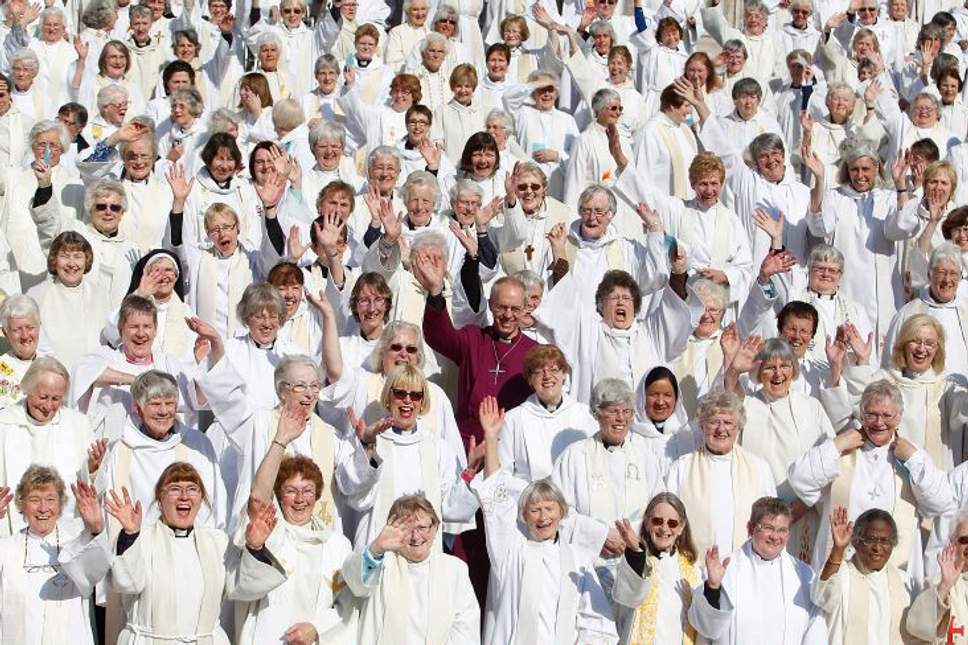
`
I will lay me down in peace, and take my rest: for it is thou, Lord, only that makest me dwell in safety. Psalm 4
These words from Psalm 4, familiar to many of us from their use in the Office of Compline, were swirling around my head in a period of wakefulness the other night. I found myself drawn to thinking about the final word in the passage, safety. This particular word is popping all the time in Christian discourse in one of its various forms. Indeed, one of its cognates, salvation, could be said to sum up one of the most important theological ideas for Christianity. But the word in Ps 4 took me to a different place and reminded me of a recent discussion on the blog post written by Andrew Lightbown. He was describing his search to find a church for his gay disabled daughter to attend over Christmas in her area. Her request had included the condition that it had to be a church where ‘I feel safe’. We can use our imaginations to fill in the features that she feared finding in a random church where her lifestyle might be scrutinised and found wanting. Indeed, one of those who were consulted in the quest, replied that they would have an easier task In listing the ‘unsafe’ churches in the area. Andrew’s enquiries for his daughter were, in fact, successful and the story has a happy ending. The daughter and her partner were welcomed, people spoke to them including the Vicar. They glimpsed a pattern of inclusion and welcome that they had possibly come to believe had disappeared from churches everywhere. For an hour or so they were able to return to a place that linked God to their longing for inclusion and safety.
The other closely aligned word ‘salvation’ is one that has, as we have indicated, enormous biblical and theological weight. I started to ask myself whether this related word, safety, should be given comparable status and importance. Surely to be safe in church is as important as being saved. We are not of course just talking about safety meaning freedom from harm, whatever form this harm might take. The safety that we trust was experienced by the two women on Christmas night was one with a positive spiritual dimension. Their experience of safety was to be connected to God without feeling in any way judged or condemned. The Church is called to be safe in both these ways. If God is indeed a being who accepts, forgives and loves us, that is an ultimate experience of being safe. We are certainly not at the same time being promised a free pass in terms of the standards of goodness he expects of us. Nevertheless, he invites to make this journey towards him without fear. To speak of God as a ‘safe’ God gives us the right never to feel manipulated by messages of terror coming from a pulpit. A safe God is not one who controls followers with messages of terror and fear. Rather we are invited to ‘enter his courts’ and there find meaning, refreshment and peace.
A further aspect in this focus on safety in a church, is in the way that this gift of being included teaches us something of our responsibilities and challenges for us as Christians. To put the issue at its simplest, if God accepts and includes us, we are to do the same for others. Looking around a typical congregation on a Sunday morning, we can react in a number of ways. One is to look for people like ourselves to talk to. The other approach is to realise that the people who are most unlike us are the people we should be reaching out to. After all, if we celebrate and worship a God who has reached out to us, should we not be returning the compliment, so to speak? God has offered us a place of safety and inclusion and we are being invited to offer the same to others.
Safety is a very good word to summarise both what we have to receive in church as well as what we have potentially to give. But this single word can be unpacked still further. I have not begun to explore, for example, the gift of safety which is offered to those who are embarking on their final journey from life to death. Much could be said about the ministry to the dying, the words of commendation into the arms of a generous and loving God. But there is more to be said about this language of safety. We have to note that the way it contrasts sharply with the language of exclusion that we hear so frequently in our churches. When a pronouncement appears such as we have recently heard from the English bishops on the topic of marriage, our hearts sink. In one stroke the intimate relationships of countless faithful Christians are declared immoral and against God’s law. At the very least, swathes of Christians cease to feel safe. The language and message of generous inclusion which we believe is part of a Gospel church is left behind. Whenever we hear the language of exclusion, we are back to a style of church life that deals in the currency of fear, control and coercion. How can such language ever be considered good news? It has the harsh heritage of the Puritan Reformation within its thinking. These 16th century Fathers dwelt in certainties, the need to exclude the ungodly and promote the ‘righteous’, very narrowly defined, on their way to salvation and heaven. To me this language is ugly. It runs counter to the generosity of God that I and many others identify as being his will and embodied in the proclamation of Jesus. I personally have a bad relationship with this word ‘salvation’ because of the way it so often evokes the language of coercion and implied threat. It often seems to be also linked with an unhealthy interest in other people’s sex lives. I dread the general atmosphere of righteous disapproval that is spread around while it is being used. Salvation, as an idea embedded in people’s consciousness, seems to do little to inspire anyone towards a path of joy, generosity and inclusiveness. It in fact seems frequently to drive them inwards towards individualism and introversion. One book I know describes an obsession with the state of one’s soul as an ‘evangelical anorexia nervosa’. Of course, we need the word salvation and the teaching and doctrine that it contains. What we do not need is the way that it has, in so many places, become identified with fear, authoritarian teaching and blind obedience. When the word safety is used within such a culture, it also takes on a different meaning from the one we have suggested above. It comes to be linked with the idea that one’s eternal fate is tied up with holding on to the prescribed rules of one particular church or its leader. To be safe in this setting is to obey. There is little trace of a truth that sets one free. The breadth, the height and depth of faith seems to be restricted here to what one minister has to say to his congregation. There is no room here for exploration, adventure or questioning in this dull world of grey orthodox conformity.
Currently the Church of England is entering a period of profound crisis. The House of Bishops has chosen, no doubt in order to meet the demands of a conservative group of Anglican Bishops from Africa prior to Lambeth 2020, to issue a pastoral statement on marriage. This is not the place to comment critically on the content of this document which sets out the ‘orthodox’ position on marriage. Others have done so, including a number of the individual bishops themselves. What can be commented on here is the style of communication. The teaching document style, setting out a prescriptive text with undertakings to ‘discipline’ those in disagreement, echoes the old fear-laden dogmatic teaching of the Puritans. ‘Unless you believe/do this, you are damned’. While the bishops themselves would probably want to distance themselves from understanding their teaching in this way, we can point out there is in the document no invitation to debate, to learn or to live with the insights of others within their words. In trying to appease the concerns of those who are boycotting Lambeth, the bishops in England have copied their language style – the Gafconesque adherence to the old in/out language of salvation. At some point, in the not too distant future, the Church is going to have to make a choice. Will it continue to travel along this path of ‘salvation’, the binary world of damned/saved thinking? Will it rather embrace the path that proclaims safety and a welcoming, generous God who reaches out to hold us in spite of all our choices and failings?







